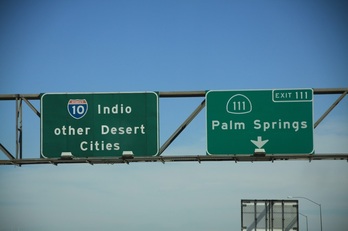
Directed by Tim Altmeyer
I will be the first one to admit, the play is a little heavy-handed with defining the political war-zones of its characters. Tell me you love Reagan, I get it. Say you enjoy a little pot with your tofu-eating tattooed friends, I get that too. I may not necessarily need to be reminded throughout an entire show just who is the elephant and who is the donkey. Theatre audiences are much brighter than that. But as hard as I may try to be critical, that is about the one and only bad thing I can say about “Other Desert Cities” by Jon Robin Baitz. It was, after all, a finalist for the 2012 Pulitzer prize for drama. And Luckily for us, when the Hippodrome Theatre gets ahold of a play, you can be sure you will get the same passion and caliber of production and performance that you will get on just about any New York stage. What they do with this play impresses.
Christmas, 2004, Palm Springs. The smell of Republicans is in the air in the forms of Polly and Lyman Wyeth, two wealthy scenesters of the right-leaning Hollywood elite political junkies. Shoulder-to-shoulder friends with Ronald Reagan and company. Rich. Snooty. Society clubbers. They trot back into their formidable mansion paradise from a leisurely early-morning tennis game with their visiting go-lucky son, surf-boy, (aptly named) Trip, who also happens to be a producer of the latest Judge-Judyesque reality show, complete with a panel of D-list celebrity judges. Also in tow is their super left-leaning daughter, Brooke, a writer in progress. Brooke is also recovering from a complete mental breakdown. She suffers from depression, but with counseling and drugs, is making a steady recovery up to, at the very least, some condition of numb. What seems to bring her any comfort and a degree of happiness is that she is in the final stages of releasing to the public at large her warts-and-all tattle book about her very own family—the primary topic being the tragic suicide of her brother in a time of war. She takes this holiday occasion to inform the P’s they are about to have their private lives published in the magnanimous New Yorker, and then the shit hits the fan. As the play purposefully unfolds, we, the audience, begin to wonder how well we really know each other and ourselves. Just how well do we know our families? Do lies and politics divide us away to other desert cities? To reveal more is to cheat the pleasures of the play. Suffice to say that Polly’s hardcore recovering Democratic alcoholic sister, Silda, does not do very much at all to smooth things over, even though, to Polly and Lyman she is made of coarse sandpaper. She is more an abrasive character than a smoothing one.
The always superb Sara Morsay brings her A-game to the table in portraying the somewhat chilly Polly and giving her the kind of complexity that allows for those on the political left to oddly sympathize with her plight. Michelle Bellever also turns a stunning but somewhat opposite experience as Brooke—those audience members who share her liberalism may ironically find her character self-serving and rigidly idealistic. Bellaver does not overplay or ham up her symptoms of depression. Rather, she lets them unfold naturally and tragically. Lauren Caldwell (on stage as an actor, which is a rare thing for the preeminent Hippodrome Director) delivers spice and great energy in her realization of Silda, and Matt Lindsay (whom I maintain is an oft under-rated genius of an actor) brings his charm, humor and hope for resolution to the mix. But it is the work of Peter Thomasson as Lyman that steals the show. He is absolutely believable, restrained, and heartbreaking. Whenever he takes the stage there is a palpable forward-leaning interest among the audience. He swaggers as Lyman proudly, yet with an aire of resignation. He is the actor’s actor who has done it all, and he reaps his rewards with his status, schmoozing in political society circles. We can see in his face, it is deep down no reward. Lyman ‘acts’ his happiness, almost right up to the bitter end.
All credit must be given to the effective lighting design by Robert P. Robbins, the time-right tone-right costumes by Marilyn A. Wall, the astonishing set that seemed to be a silent actor all of its own by Mihai Ciupe, and finally the sharp effective and clear direction by Tim Altmeyer. Within the set, my audience companion noticed five sad little Christmas balls (perhaps representing the five actors in the play) weighing down a pathetic tiny Charlie Brown-type bent over fake little Christmas tree—the kind that sits on a table top. It was sad. There was a giant portrait, beautiful and at the same time ‘gaudy’ awful as a broken desert landscape in a frame—subtly influencing anything and everything around it. There was a fireplace, all heat and dryness, in the floor. There was a weird sculpture, two arms of dark wood bent at the elbows, as if pointing the way out. These delicate touches helped to metaphorically imprint the play upon the psyche. One will leave the theatre thinking about the characters. One will then examine, with a little more thoughtfulness, everything.
“Other Desert Cities” continues its run at the Hippodrome Theatre through Sunday, September 23rd, 2012 / Produced by Mary Hausch.
 RSS Feed
RSS Feed
